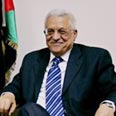

The interim Palestinian government has refunded USD 30 million in aid to the United States
because the funds would have reached an authority led by Hamas, which Washington lists as a terrorist group.
David Welch, assistant secretary of state for Near Eastern affairs, told lawmakers on Thursday the money was returned on Wednesday and the Palestinian Authority had promised to refund a further USD 20 million before Hamas took over.
"There should be by the time this interim caretaker government leaves office, no U.S. Taxpayer dollars in their (Hamas') hands," Welch told the U.S. House of Representatives
International Relations Committee.
Hamas, which is responsible for many suicide bombings in Israel, is listed as a terrorist
organization by the United States and the Bush administration cannot under U.S. Law give it any direct assistance.
Since Hamas' victory in the Palestinian election in January, the U.S. State Department has launched a review of its aid programs and the return of the USD 50 million is part of that assessment.
Welch said the United States was looking for ways to continue getting humanitarian aid to the Palestinians without breaking any U.S. law.
"It serves important U.S. national interests," he told the committee, of the need to get humanitarian aid to the Palestinians, but added: "We have not, do not and will not provide assistance to Hamas -- in government or out of government."
Tough decision
The State Department is grappling with how to continue helping the Palestinian people. Over the past decade the United States has given about USD 1.5 billion in U.S. aid to the Palestinians, most of that via nongovernmental groups.
"It has presented the United States with a dilemma," said Rep. Henry Hyde, an Illinois Republican, of Hamas' victory.
But Hyde, who chairs the committee, said a cut-off in aid for humanitarian purposes would enable other "terrorist regimes" such as Syria and Iran to fill the funding gap.
The United States and its partners on the Middle East -- the United Nations, Russia and the European Union -- issued a joint statement in London on January 30 that all international aid would be reviewed if Hamas did not change.
They insist Hamas must recognize Israel's right to exist, renounce violence and accept previous agreements made by former Palestinian governments if they want help.
Since that meeting, Russia has offered to meet with Hamas, irking the Bush administration, which wants the group to be isolated internationally.
California Democrat Tom Lantos, a survivor of the Holocaust, said he was sickened by contacts between Hamas and countries such as Russia and Turkey.
"We should make clear that we strongly oppose meeting with Hamas," said Lantos. "It is sickening hypocrisy."
"The blood of dozens of Americans and hundreds of Israeli men, women and children is on those hands," said Lantos.
The EU threw the Palestinians a short term aid lifeline of USD 143 million this week to stave off imminent financial collapse. But the EU, the Palestinians' largest donor, left open what would happen to EU aid once Hamas comes to power.
James Kunder of the U.S. Agency for International Development, assured lawmakers his department would do all it could to ensure that "not one dollar" reached Hamas.
He painted a dismal picture of the humanitarian situation in the Palestinian territories, where 46 percent of the population lived below the poverty line and income levels were steadily falling.















